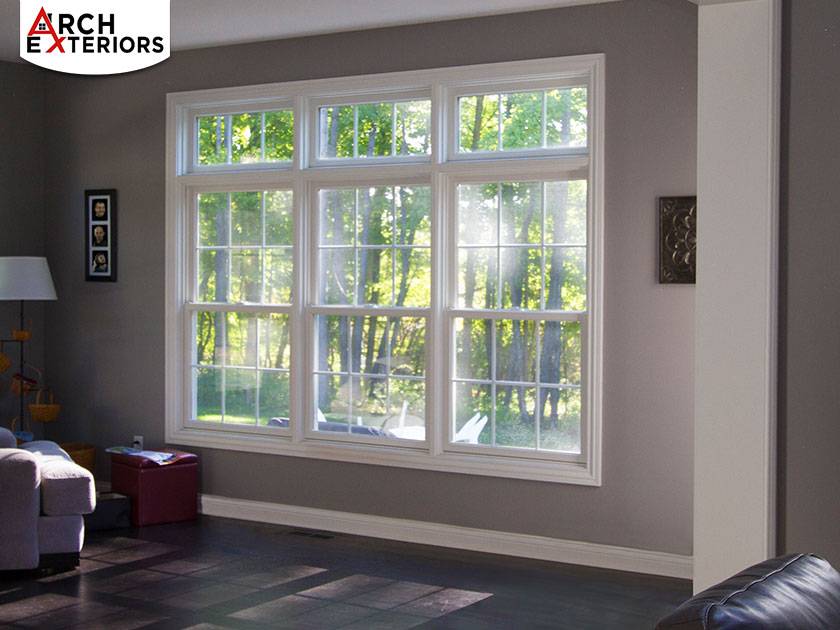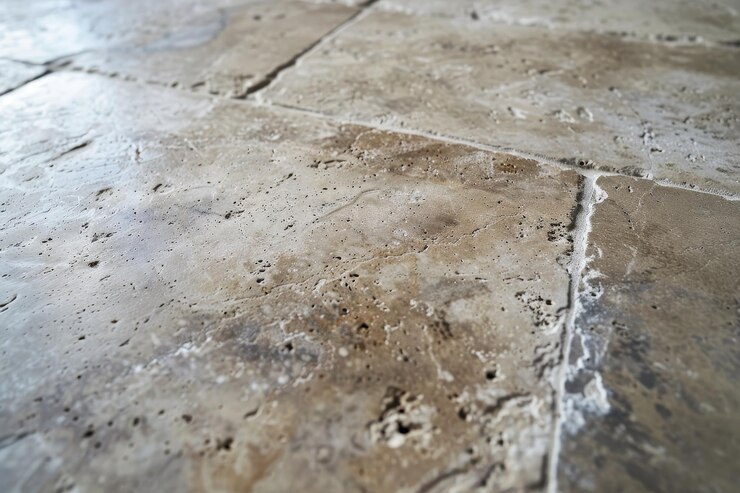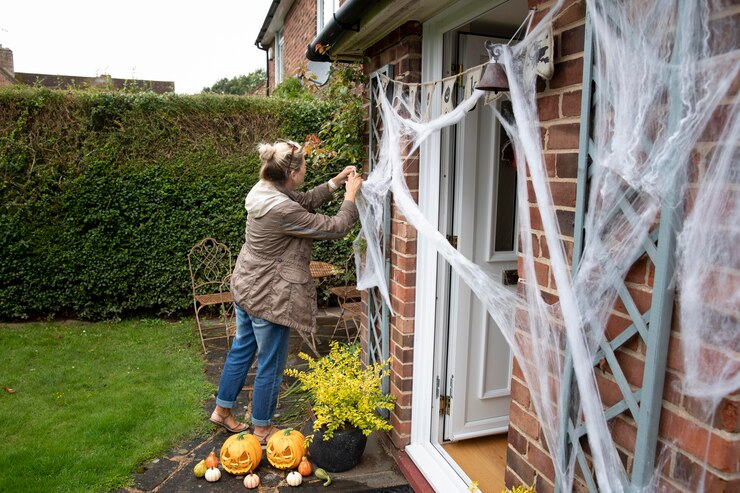Yes, home insurance typically covers window replacement. Home insurance policies often include coverage for damage to windows caused by covered perils such as storms, vandalism, or accidents.
However, the specific coverage and limits may vary depending on the insurance provider and the policy terms. It’s important to review your policy and consult your insurance agent to understand the extent of coverage for window replacement. Making sure you have appropriate coverage can provide financial protection in case your windows need to be replaced due to unexpected events.
Protecting your home and its contents should always be a priority, and having the right insurance coverage can help provide peace of mind.

Credit: azwindowreplacement.com
Understanding Home Insurance Coverage For Window Replacement
Home insurance is an essential protection for homeowners, covering various aspects of their property and belongings. However, it is crucial to understand what is included in your policy when it comes to window replacement. In this section, we will discuss the importance of home insurance coverage for window replacement and the factors to consider when evaluating coverage options.
Additionally, we will explore the common types of home insurance policies available.
Importance Of Home Insurance Coverage For Window Replacement
Home insurance provides financial security, allowing homeowners to recover from unexpected events such as storm damage or burglaries. When it comes to window replacement, having adequate coverage is essential. Here are a few reasons why:
- Protection against natural disasters: Home insurance can help cover the cost of replacing windows damaged by severe weather conditions like hurricanes, hailstorms, or tornadoes.
- Coverage for vandalism and theft: If your windows are broken due to vandalism or in the unfortunate event of a break-in, home insurance can assist in covering the expenses of window replacement.
- Enhanced home security: Replacing old or damaged windows not only improves the aesthetics of your home but also helps enhance security. Having a home insurance policy that covers window replacement can give you peace of mind.
Factors To Consider When Evaluating Coverage Options
Before choosing a home insurance policy that includes window replacement coverage, consider the following factors:
- Coverage limits: Check the policy’s limits to ensure it provides adequate coverage for window replacement. Some policies may have specific limits, so it’s essential to understand the terms.
- Deductibles: Evaluate the deductibles associated with window replacement coverage. A higher deductible may result in lower premiums, but it means you’ll have to pay more out of pocket in the event of a claim.
- Exclusions or limitations: Pay attention to any exclusions or limitations related to window replacement. Some policies may not cover certain types of windows or damages caused by specific events.
- Additional endorsements: Some insurers offer additional endorsements or riders that can provide enhanced coverage for window replacement. Consider these options if you have unique windows or live in an area prone to specific risks.
Common Types Of Home Insurance Policies
When it comes to home insurance coverage, there are several policy types available. Here are the most common ones:
- Ho-1: Provides limited coverage for specific perils like fire, theft, and vandalism.
- Ho-2: Offers broader coverage than ho-1 and includes additional perils like falling objects or damage caused by the weight of ice, snow, or sleet.
- Ho-3: The most popular choice, ho-3 policies provide broad coverage for both the dwelling and personal belongings, except for explicitly excluded perils.
- Ho-5: Similar to ho-3 but with broader coverage for personal belongings, ho-5 policies are suitable for homeowners who want maximum coverage.
- Ho-6: Designed for condominium owners, ho-6 policies cover personal belongings and improvements made to the unit.
- Ho-8: Specifically for older homes, ho-8 policies provide basic coverage with limited replacement cost, considering the unique construction and materials used in older properties.
Understanding your home insurance coverage options for window replacement is crucial to ensure you have the necessary protection in case of damage or loss. Review your policy carefully, assess your needs, and consider consulting with an insurance professional to make informed decisions about your coverage.
Determining Coverage For Window Replacement
When it comes to home insurance, understanding what is covered and what is not can make all the difference when it comes to filing a claim. One common question homeowners often have is whether home insurance covers window replacement. In this section, we will explore the factors that determine coverage for window replacement and highlight any limitations or exclusions you should be aware of.
Coverage Limitations And Exclusions For Window Replacement
- Age of windows: Home insurance policies may have limitations on coverage for window replacement based on the age of the windows. Older windows may not be eligible for full replacement coverage.
- Cause of damage: The cause of window damage can affect coverage. Accidental damage, such as a stray baseball breaking a window, is typically covered, while damage resulting from wear and tear may not be covered.
- Deductibles: Like any insurance claim, window replacement typically requires the homeowner to pay a deductible before the insurance coverage kicks in. It’s important to review your policy to understand the deductible amount and how it applies to window replacement claims.
Factors That May Impact Coverage Eligibility
- Types of policy: The type of home insurance policy you have can determine coverage eligibility for window replacement. Basic policies may provide limited coverage, while more comprehensive policies may offer broader coverage options.
- Endorsements or additional coverage: Some homeowners may choose to add endorsements or additional coverage specifically for window replacement or glass breakage. These added coverages can enhance your insurance protection for window replacement.
- Pre-existing damage: Home insurance policies typically do not cover pre-existing damage. If your windows have existing issues or damage prior to securing the policy, you may not be eligible for coverage.
Reviewing Your Policy To Understand Coverage Details
- Policy language: It’s important to carefully review your policy language to understand the specific details of what is covered and what is excluded when it comes to window replacement. Look for clear definitions and terms related to window damage and replacement.
- Policy limits: Home insurance policies often have limits on the amount of coverage provided for window replacement. Understanding these limits can help you assess the adequacy of coverage and make informed decisions.
- Contact your insurance provider: If you have any doubts or questions about your coverage for window replacement, it’s always a good idea to contact your insurance provider directly. They can provide you with the most accurate and up-to-date information regarding your policy.
Remember, each insurance policy may vary in terms of coverage for window replacement, so it’s essential to review your specific policy and consult with your insurance provider to fully understand your coverage details.
Filing A Claim For Window Replacement
When it comes to filing a claim for window replacement, there are a few important steps you need to take in order to navigate the process successfully. It’s crucial to gather all the necessary documentation and work closely with your insurance provider to ensure a smooth claims experience.
To help you through this process, here are the steps to take when filing a window replacement claim:
- Contact your insurance company: Reach out to your insurance provider as soon as you discover the need for window replacement. Inform them about the specific damage and inquire about the coverage details for window replacements. They will guide you through the next steps and provide you with all the necessary information.
- Document the damage: Take clear and detailed photographs of the damaged windows. Make sure to capture the extent of the damage from multiple angles. These photographs will serve as crucial evidence during the claims process and ensure that your insurance provider fully understands the scope of the replacement required.
- Assess the cause: Identify the cause of the window damage, whether it was due to a storm, break-in, or any other covered event. This information will help your insurance provider assess the validity of your claim and determine whether window replacement is covered under your policy.
- Review your policy: Carefully review your home insurance policy to understand the coverage and any specific provisions related to window replacement. Look for any deductibles, limits, or exclusions that may apply to your claim. Understanding your policy will help manage your expectations during the claims process.
- Contact a window replacement professional: Engage the services of a reputable window replacement professional to obtain an estimate for the replacement cost. Ensure that the estimate includes the type of windows, labor, and any additional expenses that may be required.
- File the claim: Initiate the claim process with your insurance provider by providing them with all the necessary documentation, including the photographs and the cost estimate from the window replacement professional. Make sure to complete the claim form accurately and include all relevant details.
Required documentation for the claims process:
- Clear and detailed photographs of the damaged windows
- Estimate from a window replacement professional, including the type of windows and labor costs
Working with your insurance provider to navigate the claim:
- Contact your insurance company as soon as possible
- Inform them about the specific damage and inquire about coverage details
- Document the damage with multiple photographs
- Assess the cause of the window damage
- Review your home insurance policy for coverage details and provisions
- Consult a reputable window replacement professional for an estimate
- Initiate the claim process by providing all necessary documentation
Remember, each insurance provider may have slightly different processes and requirements for filing window replacement claims. By following these steps and providing the necessary documentation, you’ll be well-prepared to navigate the claim process and ensure a successful window replacement outcome.
Exploring Additional Coverage Options
Supplementary Insurance Policies For Window Replacement:
- Flood insurance: If you live in an area prone to floods, this policy can cover window damage caused by floodwaters.
- Earthquake insurance: This additional coverage option comes in handy if you reside in an earthquake-prone area, protecting your windows from potential damage during seismic activities.
- Hail insurance: With hailstorms becoming more frequent, having this policy ensures your windows are covered against hail damage.
- Windstorm insurance: For those located in regions prone to high winds, consider this policy to safeguard your windows from wind-related perils.
- Hurricane insurance: If hurricanes are prevalent in your area, this coverage can help cover the cost of window replacement due to storm damage.
Policy Endorsements That Can Enhance Coverage:
- Scheduled personal property endorsement: By adding this endorsement, commonly known as floater coverage, you can protect valuable window treatments, such as custom blinds or stained glass, beyond the limits of your standard home insurance policy.
- Inflation guard endorsement: This endorsement helps account for inflation by automatically adjusting coverage limits. It ensures you won’t face out-of-pocket expenses for window replacement if prices rise.
- Ordinance or law coverage: This endorsement provides coverage for when you need to replace windows to meet updated building code requirements. It covers the additional expenses involved in bringing your home up to code.
Cost Considerations For Additional Coverage:
- Premiums: Adding supplementary policies or endorsements may increase your home insurance premiums.
- Deductibles: Review the deductibles associated with the additional coverage options. Higher deductibles could result in lower premiums, but be prepared to pay more out-of-pocket in the event of a claim.
- Coverage limits: Ensure the coverage limits of the additional policies are sufficient to replace your windows at market value.
- Discount opportunities: Inquire with your insurance provider about available discounts for bundling policies or implementing protective measures for your home, which can help offset the cost of additional coverage options.
Remember, it’s essential to review your policy and consult with your insurance agent to determine the most suitable coverage options for your specific needs. Understanding the available supplementary policies and policy endorsements can help ensure adequate coverage for window replacement without breaking the bank.
Maintaining Your Windows For Insurance Coverage
Regular maintenance is crucial for keeping your home in good condition. It not only enhances your home’s aesthetic appeal but also ensures that your insurance coverage remains intact. When it comes to windows, proper maintenance plays a significant role in determining whether or not window replacement is covered by your home insurance policy.
In this section, we will explore the importance of regular window maintenance, provide tips for keeping your windows in good condition, and understand the impact of neglecting window maintenance on insurance coverage.
Importance Of Regular Window Maintenance:
- Regular window maintenance helps to extend the lifespan of your windows, increasing their durability.
- Well-maintained windows provide better insulation, minimizing energy loss and reducing utility bills.
- Keeping your windows in good condition enhances the overall security of your home, deterring potential burglaries.
- Regular maintenance prevents common window issues such as leaks, drafts, and foggy glass, ensuring your home remains comfortable and well-protected.
- Maintaining your windows also preserves their aesthetic appeal, contributing to the curb appeal and value of your property.
Tips For Keeping Your Windows In Good Condition:
- Clean your windows regularly using a mild detergent and warm water to remove dirt and grime. Avoid using abrasive cleaners that may damage the glass or window frames.
- Inspect the windows for any signs of damage, such as cracks, gaps, or rotting wood. Promptly repair or replace damaged components to prevent further deterioration.
- Lubricate window tracks and hinges periodically to ensure smooth operation.
- Do not neglect the window seals. Check for any gaps or deterioration and replace worn-out seals to prevent moisture infiltration.
- During extreme weather conditions, such as severe storms or heavy winds, consider securing your windows with storm shutters or installing impact-resistant glass.
- Trim nearby trees or branches that could potentially damage your windows during strong winds or storms.
Impact Of Neglecting Window Maintenance On Insurance Coverage:
- Insurance policies generally require homeowners to perform routine maintenance to prevent damage. Neglecting window maintenance may result in a denial of your insurance claim for window replacement.
- If your windows were damaged due to lack of maintenance, insurance companies may consider it a result of negligence, which may void your coverage.
- Inadequately maintained windows increase the risk of water intrusion and mold growth, which insurance policies usually exclude from coverage.
- Regular window maintenance demonstrates responsible homeownership, making it more likely that your insurance company will be willing to cover window replacement if it becomes necessary due to covered perils such as storms or vandalism.
Remember, maintaining your windows not only ensures their longevity and functionality but also helps protect your insurance coverage. By diligently following these tips, you can keep your windows in excellent condition while maintaining peace of mind knowing that your insurance coverage for window replacement remains intact.
With regular maintenance, you can enjoy the benefits of well-functioning windows and a beautiful home.
Common Window Replacement Scenarios And Coverage
Window Damage Due To Natural Disasters:
- Window damage caused by natural disasters such as hurricanes, tornadoes, or earthquakes can be covered by home insurance policies.
- Insurance typically covers the cost of repairing or replacing windows damaged by these events.
- However, it’s important to note that coverage may vary depending on the specific policy and the level of coverage you have chosen.
- It is recommended to review your policy and consult with your insurance provider to fully understand the coverage provided.
- Some insurance policies may require additional coverage for specific natural disasters, so it’s crucial to be aware of any exclusions or limitations.
Accidental Breakage And Vandalism:
- Accidental breakage of windows, whether caused by a stray ball or a fallen tree branch, is usually covered by home insurance.
- Vandalism, such as someone intentionally breaking your windows, is also typically covered.
- The insurance policy will usually cover the cost of repairing or replacing the damaged windows, up to the coverage limit specified in the policy.
- It’s important to report any incidents promptly and provide the necessary documentation to support your claim.
Wear And Tear Over Time And Insurance Coverage Implications:
- Home insurance is generally not designed to cover wear and tear on windows over time.
- While window replacement due to age-related deterioration is not typically covered, there may be exceptions for certain types of damage, such as rot or water damage.
- It is essential to review your insurance policy carefully to determine if any coverage is provided for these types of window issues.
- Some policies may include optional coverage for specific situations, such as accidental breakage or hidden water damage, so it’s worth exploring these options.
- Additionally, regular maintenance and proper care of windows can help prolong their lifespan and reduce the likelihood of issues not covered by insurance.
Remember that each insurance policy is unique, and coverage may vary. Reading and understanding your policy is crucial to know your specific insurance coverage for window replacement. Reach out to your insurance provider for any inquiries or to clarify any doubts you may have.
Evaluating The Cost Of Window Replacement
Windows play a crucial role in the aesthetics, energy efficiency, and security of your home. Over time, however, windows can become damaged or outdated, requiring replacement. Before embarking on a window replacement project, it’s essential to understand the costs involved.
By evaluating the average cost of window replacement, factors that impact these costs, and the reimbursement and deductibles associated with home insurance coverage, you can make an informed decision regarding your window replacement project.
Average Cost Of Window Replacement:
- Replacement window costs can vary based on several factors, including the type, size, style, and material of the windows. Here’s an overview of the average costs involved:
- Single-hung or double-hung windows: $150 – $400 per window.
- Casement windows: $200 – $1,000 per window.
- Sliding windows: $300 – $1,200 per window.
- Skylights: $300 – $2,000 per window.
- Bay or bow windows: $1,000 – $4,500 per window.
- Custom-made windows: $800 – $2,000 per window.
Factors That Impact Window Replacement Costs:
The cost of window replacement is influenced by various factors. Understanding these factors can help you estimate the overall expense more accurately. Here are the key considerations:
- Window materials: The choice of window materials, such as vinyl, wood, aluminum, or fiberglass, affects the cost. Each material has its own price range and durability.
- Window size and style: Larger windows generally cost more than smaller ones, and unique styles may require specialized installation techniques, increasing the overall price.
- Number of windows: The total number of windows you need to replace will impact the overall cost, including the labor and material expenses.
- Energy-efficient features: Windows with energy-efficient features, like low-e coatings or double glazing, might have a higher upfront cost but can lead to long-term energy savings, reducing utility bills.
Understanding Reimbursement And Deductibles:
When it comes to home insurance coverage for window replacement, it’s crucial to understand the reimbursement process and deductibles involved. Here’s what you should know:
- Reimbursement process: If your windows are damaged or destroyed due to a covered peril, such as a storm, vandalism, or fire, your home insurance may provide coverage for the replacement costs. However, the extent of coverage and reimbursement process can vary depending on your policy.
- Deductibles: Home insurance policies often have deductibles, which are the out-of-pocket expenses you must pay before the insurance coverage kicks in. It’s important to review your policy to understand the deductible amount and how it applies to window replacement claims.
Navigating the cost of window replacement can be overwhelming, but by considering the average costs, factors impacting those costs, and understanding home insurance coverage, you can make informed decisions for your home. Don’t hesitate to reach out to qualified professionals for advice and estimates to ensure a successful window replacement project.
Tips For Maximizing Window Replacement Coverage
Reviewing your policy for potential upgrades:
- Understand the terms of your home insurance policy and determine if it covers window replacement. Look for any specific exclusions or limitations related to window damage.
- Explore if there are optional coverage upgrades that can be added to your policy to ensure window replacement is included. This may involve contacting your insurance provider or reviewing your policy documents.
Monitoring for changes in policy terms and coverage:
- Stay informed about any changes in your insurance policy. Policies can be amended or updated, so it’s crucial to review your policy documents periodically.
- Pay close attention to alterations in the terms and conditions of your policy, especially in regards to window replacement coverage. This will help you stay prepared and aware of any changes that may affect your coverage.
Seeking assistance from a professional insurance advisor:
- Consulting with an insurance advisor can provide valuable insights and guidance when it comes to understanding your policy coverage.
- An insurance advisor can review your policy, explain coverage terms, and assist in identifying any potential gaps or opportunities for maximizing window replacement coverage.
- Their expertise can help you make informed decisions and ensure your policy aligns with your specific needs and concerns.
Remember, understanding your home insurance policy is essential for maximizing window replacement coverage. By reviewing your policy, monitoring for changes, and seeking assistance from an insurance advisor, you can ensure that your windows are adequately protected.
Conclusion [Do Not Use As Heading]
Understanding the coverage for window replacement under home insurance is crucial for homeowners. It’s important to know what your policy covers and what it doesn’t, as well as the necessary steps to take in case you need to file a claim.
Additionally, exploring additional coverage options can provide homeowners with extra protection and peace of mind. In this section, we will discuss the considerations for evaluating coverage options, filing a claim, and exploring additional coverage.
Considerations For Evaluating Coverage Options:
- Policy terms and conditions: Review your insurance policy carefully to understand the coverage for window replacement. Look for any limitations or exclusions that may affect your ability to file a claim.
- Replacement cost vs. actual cash value: Determine whether your policy provides coverage for the full replacement cost of your windows or if it only covers the actual cash value. Replacement cost coverage is generally more beneficial, as it covers the cost of replacing damaged windows with new ones, whereas actual cash value coverage takes depreciation into account.
- Deductible: Take note of your policy’s deductible, which is the amount you are responsible for paying out-of-pocket before your insurance coverage kicks in. Consider whether the deductible amount aligns with your budget and the potential cost of window replacement.
Filing A Claim:
- Document the damage: Take photos or videos of the damaged windows as evidence for your insurance claim. This documentation can help support your claim and ensure a smoother process.
- Contact your insurance provider: Inform your insurance company about the damage and start the claims process as soon as possible. Provide them with all the necessary information, including the date of the incident, a description of the damage, and any supporting documentation you have.
- Follow the claims process: Your insurance provider will guide you through the claims process, which may involve filling out claim forms, providing estimates for the cost of replacement, and cooperating with any inspections or investigations they may require.
Exploring Additional Coverage:
- Special coverage for high-value windows: If you have high-value windows, such as stained glass or custom-made windows, consider adding special coverage or endorsements to your policy. This can ensure that you have adequate protection in case of damage or loss.
- Homeowner’s endorsements: Check if your insurance provider offers endorsements that can enhance your coverage. Some endorsements may provide additional protection for specific situations, such as coverage for water damage caused by a broken window.
- Umbrella policies: Consider purchasing an umbrella policy, which provides coverage beyond what is typically offered by your home insurance policy. This can provide added protection for window replacement and other potential liabilities.
Understanding the coverage for window replacement under home insurance is essential for homeowners. Evaluating coverage options, familiarizing yourself with the claims process, and exploring additional coverage can help homeowners make informed decisions to protect their investment and ensure peace of mind.
By taking these considerations into account, you can be better prepared for any unforeseen damage to your windows and navigate the insurance process with confidence.
Frequently Asked Questions For Does Home Insurance Cover Window Replacement
Does Home Insurance Cover Window Replacement?
Home insurance may cover window replacement in certain situations, such as damage caused by a storm or break-in. It is important to carefully review your policy to understand the specific coverage and any limitations or exclusions related to window replacement.
Contact your insurance provider to discuss your specific situation and coverage options.
Conclusion
Home insurance can provide coverage for window replacement in certain circumstances. It’s important to review your policy to understand the specific details and limitations. If the damage to your windows is caused by a covered peril, such as a storm or vandalism, your insurance company may reimburse you for the cost of replacement.
However, if the damage is due to wear and tear or neglect, it may not be covered. It’s also important to note that there may be limits to the amount of coverage provided for window replacement. In some cases, you may need to purchase additional coverage or endorsements to ensure adequate protection for your windows.
Remember to document the damage and report it to your insurance company promptly to begin the claims process. By reviewing and understanding your policy, you can ensure that you have the necessary coverage to safeguard one of the most vulnerable aspects of your home.




